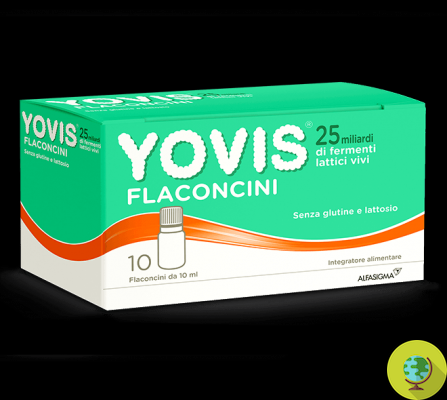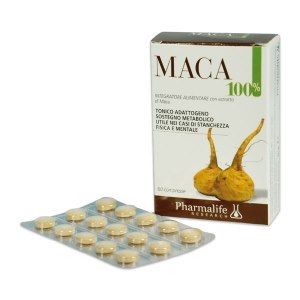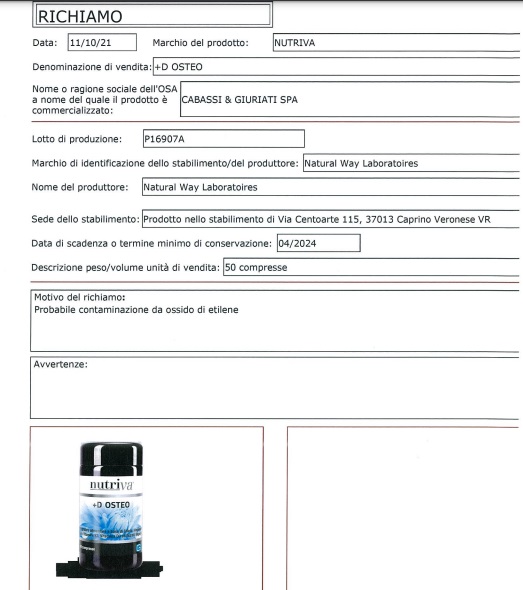 Don't store avocado like this: it's dangerous
Don't store avocado like this: it's dangerous
Collagen supplements are effective for preventing the signs of aging. Here's how and when to take them for more benefits
- collagen supplements they are essential for maintaining young, toned and radiant skin. But it is not always easy to understand how to best introduce them into your routine, also because there are so many different options on the market. How to choose the most suitable one? And once purchased, how and when should these supplements be taken?
Here are some tips on collagen supplements.
Index
Always go for one with vitamin C
La Vitamin C it is one of the main ingredients for skin care, also essential for promoting collagen production. In fact, it has been shown that our body cannot effectively produce collagen without an antioxidant.
Vitamin C is actually capable of promote the production of fibroblasts, rule the synthesis of collagen. Vitamin C, therefore, is a key cofactor in the synthesis of collagen and elastin, which helps to give the skin a more plump and youthful appearance.
But that's not all, since vitamin C can also have a protective role, since it is able to stabilize the collagen already present in the body thanks to its antioxidant properties, which help neutralize the damage of free radicals, which is one of the main sources of degradation of collagen.
However, the body cannot make vitamin C on its own, which is why experts recommend finding a collagen-based product with the antioxidant already formulated inside so that they can work together synergistically. (Read also: The 7 best supplements and vitamins most effective against stress)
Take it every day in the morning or in the evening
- collagen supplements can be taken in the morning or evening, is indifferent. According to some, taking it in the morning is better because it is digested on an empty stomach and absorbed better. Others, however, argue that taking it mid-morning or afternoon can help maintain satiety for longer. Finally, there are those who argue that the best time is in the evening, as it can help the body's recovery process during REM sleep.
On a scientific level, however, there is no research indicating the best time to take collagen. So, you can take your supplements whenever you want.
Choose type I and III collagen for skin benefits
Collagen is not a monolith: there are in fact at least 28 types of proteins that we know are present in vertebrates (including us), each specialized and localized in different areas of the body. As for the skin, the ones you should focus on are types I and III, both of which are found in collagen of bovine origin (cow, bovine).
Type I is the most abundant in the body, not just in the skin: it is found in the joints, bones, tendons, and so on. A little study showed that when people took an oral supplement containing mainly hydrolyzed type I collagen, after 60 days, facial lines and wrinkles appeared smoother and skin retained healthy hydration levels.
Il type III is a less studied collagen, but no less interesting. This type of collagen promotes skin health and elasticity. Few studies, however, they looked at type III intake only, or at least in the same way that research on types I and II was conducted.
Research has found that type III collagen content in the skin decreases with age; also type I is gradually decreasing, but to a lesser extent, for this reason it is believed that type III may have something to do with skin aging. Although there are still certainties on this point, we know that the Type III collagen is very important for the function of fibroblasts.
Start your collagen supplement routine right away
For those wondering when to start a collagen supplement routine, it should be emphasized that collagen levels naturally decline with age. Generally, this begins around the age of 20 and continues to decrease by around the1% annually. When, exactly, this happens varies greatly depending on genetics, but most people start noticing changes in skin elasticity around the age of 30.
It must also be emphasized and remembered that the Collagen supplements do not eliminate deep lines and pronounced, nor can they lift very loose skin. Basically, the major signs of aging won't magically fade away but you can use collagen to improve skin tone, but damage must be prevented and no supplements once the skin has become too leathery and damaged. (Read also: We have a problem with Omega 3 supplements - not all of them would be effective for heart health)
Useful during menopause
Studies show that the Women's skin loses about 30% of its collagen during the first five years of the menopause and about 2% each year for the next 20 years.
Taking a collagen supplement during this delicate period for women can help your body produce collagen naturally, supporting fibroblasts and the parts of the cell that produce collagen and elastin.
Which one to choose: prefer a natural collagen
With regard to the choice of supplements it is better to opt for natural products of animal origin, but that are raised in pasture and fed with a healthy diet based on grass. The reason? In this way the animal grows well, and as close as possible to its natural state.
Also, you'll want to make sure the formula is clean and transparent. Always check theINCI, because in these cases the fewer ingredients, the better. Avoid products with artificial colors, flavors, gluten, GM, soy and allergens. If your collagen product has flavors, look for natural varieties (such as organic cocoa, organic vanilla). If there is a sweetener, it is better to choose plant sources and clean like fruit extract or organic coconut sugar. (Read also: The daily habits that are making you age earlier, according to studies)
Avoid creams
Collagen is often used as a marketing tool in beauty products. There are numerous products on the market, such as creams and serums, which carry the wording "with collagen". If used locally the collagen idrata and it's not doing more, especially it doesn't help in collagen production.
The reason? It is a huge molecule that is found on the surface of the skin and cannot be absorbed into the dermis. Therefore, if applied locally, it is not possible for collagen to penetrate, for this reason others are used active ingredients to stimulate collagen production.
Take care of all of your skin
Skin is a complex system that contains several parts to keep it healthy. Sure, collagen is the structural component, but you also need more like:
- elastina to keep the skin flexible and soft,
- ceramides to act as a sealant, and keep the skin barrier strong
- hyaluronic acid to help the skin retain water, so it stays hydrated,
- antioxidants to help protect the skin from internal and external aggressors.
Without all of these components working together, the skin cannot function optimally. So while collagen is a great place to start when it comes to skin health, you shouldn't forget these other key components.
If you are pregnant, nursing, or taking any medications, always consult your doctor before starting a supplement routine.
Follow us on Telegram | Instagram |Facebook | TikTok | Youtube
Could it be interesting for you:
- Collagen supplements on Amazon: 64% contains arsenic. Also found lead, cadmium and mercury
- Coenzyme Q10: what it is, benefits, when you should take it and with what precautions
- Vitamin B12 deficiency: symptoms, risks and how to meet the daily requirement
- The speed at which we age may depend on this little mineral
- So pollution ages you faster, causing DNA damage. I study


























